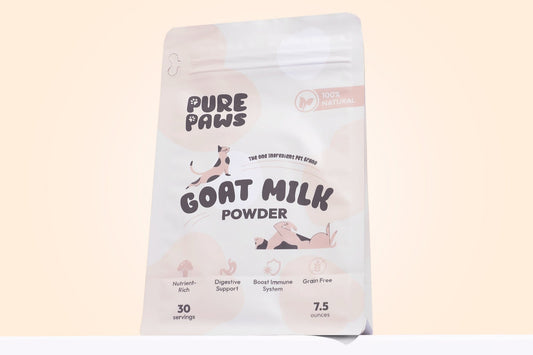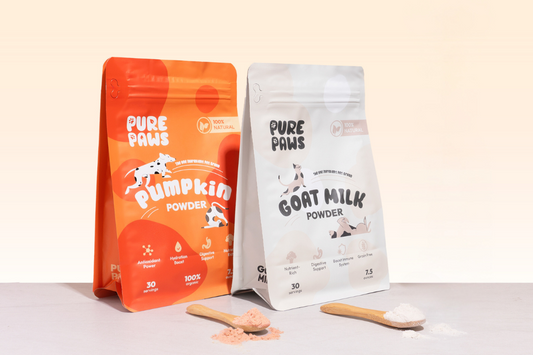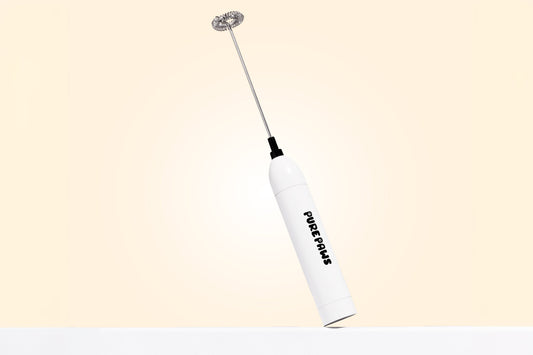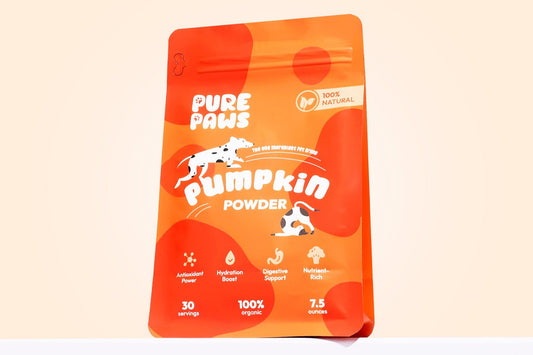
Understanding Senior Dog Nutrition: Essential Needs and Supplements
Your dog has been a source of joy since they were a little puppy. However, as they grow, the years take a huge toll on their health. Thus, senior dog nutrition is one of the greatest concerns of every pet parent with aging dogs.
The key to offering them the right nutrition is understanding potential health concerns and remedies through supplements. So, in this blog, let’s explore all significant supplements for your mutt!
Understanding Senior Dog Nutrition Needs
Senior dogs nutritional requirements are very different from those of young dogs. As your dog ages, they experience different physiological changes, such as reduced metabolism, lower muscle mass, cognitive issues, and joint problems.
If you don’t upgrade their diet to address these health concerns, your senior dog may suffer from severe issues. In fact, 50% of dogs over seven years old are highly likely to develop arthritis. Some other concerns include obesity, diabetes, and kidney issues.
So, you must provide proper nutrition to keep your pooch healthy and lively throughout their golden years!
Essential Supplements for Senior Dog Nutrition
To meet all senior dogs nutritional needs, include the following supplements in their diet and maintain a healthy balance in every meal!
Omega-3 Fatty Acids
Omega-3 fatty acids are one of the must-have nutritional needs of senior dogs. These supplements are healthy for the heart, as they reduce blood pressure by lowering triglycerides.
They offer amazing benefits for every old pup with hip dysplasia or arthritis. Omega-3’s anti-inflammatory properties also reduce hip and joint stiffness and pain. Thus, your little canine can stay active even during their older years.
The DHA (docosahexaenoic acid) in Omega-3 also supports their brain health, ensuring balanced cognitive function. The supplements even enhance your pooch’s skin and coat, immunity, strength, and eye health.
How to introduce it?
While fish oil is a common Omega-3 fatty acid source for dogs, it may contain heavy metals and other toxins.
So, it’s better to offer green-lipped mussel (GLM) in powder or liquid form. GLM is sustainably grown, rich in varied fatty acids, and more bioavailable than fish oil.
Vitamin E for Senior Dog Nutrition
Vitamin E is another essential senior dog nutrition supplement. These protect your dogs from oxidative damage by elevating their fat metabolism in a safe and healthy manner.
A sufficient amount of vitamin E ensures your dog has favorable levels of muscle and eye strength even in their golden years.
How to introduce it?
Some great vitamin E sources for your mutt are leafy greens, eggs, and unsalted sunflower seeds. You can also try vitamin E soft gels, but seek your vet’s recommendation before administering them.
Another amazing way to introduce major antioxidants, such as omega fatty acids and vitamins A and E, to your dog’s diet is to offer them organic pumpkin powder. It boosts your dog’s skin and coat health, enhances gut health, regulates digestion, and eases diarrhea and constipation.
Vitamin C for Senior Dog Nutrition
Another amazing senior dog nutrition element is Vitamin C. This antioxidant boosts your pup’s immunity through manifolds, making it common, especially during the cold and flu seasons.
Vitamin C also slows down cognitive aging and reduces its signs. It also keeps inflammation at bay, so it’s great if your dog suffers from arthritis.
The supplement also supports tissue growth, iron and calcium formation, and balanced adrenal gland function for adequate hormone production.
How to introduce it?
The best sources of vitamin C for dogs include blueberries, broccoli, and oranges.
Vitamin B
Vitamin B increases your pooch’s energy levels and supports brain health. It also keeps their skin, hair, and coat shiny and healthy throughout the golden years. Some even believe it improved their memory and learning abilities.
How to introduce it?
Fish, beef, pork, chicken, eggs, lamb, organ meat, dairy, legumes, grains, seeds, and nuts are the best vitamin B sources for your aging pup.
Calcium for Senior Dog Nutrition
Calcium is essential for aging dogs’ bones, teeth, coat, muscles, and heart health. Insufficient calcium in your dog’s diet can cause rickets, restlessness, muscle twitching, osteoporosis, joint stiffness, convulsions, and lethargy.
How to introduce it?
The best supplement for your dog’s calcium intake is goat milk. It’s even better than cow milk, owing to higher calcium, protein, magnesium, phosphorus, and potassium content.
If your pooch has a sensitive stomach, it’s better to offer goat milk powder dissolved in water as they have smaller and easy-to-digest fat globules. It also supports their immune system and enhances their immunity against pathogens and bacteria.
Other calcium-rich options food sources are yogurt, cheese, eggs, sardines, spinach, broccoli, and sweet potatoes.
Prebiotics
Prebiotics are indigestible fibers that pass through your dog’s digestive tract and ferment in its colon. These build short-chain fatty acids that reduce inflammation and disease risks and boost gut health.
Prebiotics also help beneficial gut bacteria thrive and boost the efficiency of probiotics.
How to introduce it?
While you can buy vet-recommended prebiotic supplements, you can also offer prebiotic-rich food sources. Mushrooms, dandelion greens, garlic, burdock roots, and chicory roots are great options.
Probiotics
Dogs need a diverse and highly-populated microbiome, including bacteria and microorganisms, for gut health. However, with age, their microbiome grows weaker, leading to inflammation and leaky guts.
How to introduce it?
Ask your vet to recommend a probiotic supplement with around 10 strains of bacteria and 30 billion+ colony-forming units (CFUs). This ensures that some probiotics survive until reaching their colon. You can also get more lasting soil-based probiotics with 1-2 strains and up to 1 billion CFUs.
Digestive Enzymes
With age, your dog’s digestive enzyme production slows down. Digestive enzymes help your dogs absorb nutrients from their meals. An inadequate amount of this supplement affects their immunity, detoxifying abilities, hormones, digestion, and gallbladder function.
How to introduce it?
Offer fermented veggies, bananas, ginger, and honey. Find foods rich in digestive enzymes, including papain, betaine hydrochloric acids, cellulose, bromelain, invertase, and ox bile.
Conclusion
Senior dogs require special care and attention in their diet. With the right food, you will keep health concerns at bay and ensure they stay playful and happy throughout these years. So, contact your vet today and get recommendations for the best quality supplements.
To nourish your aging pup and ensure its peak health, check out our range of nutritious supplements at Pure Paws. Our single-ingredient natural products offer great holistic health benefits for your pets and ensure their lasting health and happiness!








